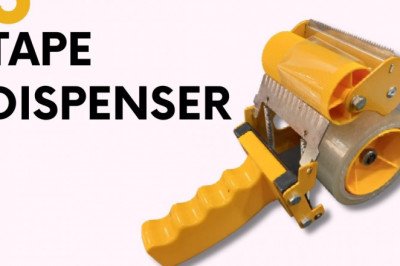views
When to use a business loan
If you need a large sum for your business that you can pay back with interest in monthly installments over a fixed period, it makes sense to apply for a business loan. But keep in mind that there are different types of business loans available. You will need to pick the right one for your needs.
Types of business loans include:
- Commercial real estate loans: Allows business owners to buy land or property for the company.
- Business term loans: Best for business owners with a high credit score who want to borrow a large amount upfront.
- Equipment financing loans: Used to purchase any physical asset your business needs, like vehicles, equipment and machinery.
- Accounts receivable or invoice financing: A short-term loan against the amounts due from customers.
- Working capital loans: Taken to pay for short-term daily operations and address temporary drops in profit.
- Business acquisition loan: Business owners who want to buy an existing business or franchise may consider this loan type.
- Startup loan: Financing for newer businesses based on the borrower’s personal credit score.
Different types of business loans will have different interest rates. Select a business loan based on its specific terms including the interest rate, the amount you want to borrow, your desired term length, monthly payment and associated fees. Boost the odds of approval by applying for the correct type of loan, preparing a great business plan, meeting the minimum requirements and backing your debts with personal or business assets.
Pros of a business loan:
- You can use a business loan to bridge cash flow gaps, address emergencies, pay off higher-interest debt or take advantage of new business opportunities.
- A business loan is conducive to better cash flow, since paying it back can be financially easier to manage versus credit card debt.
Downside of a business loan:
- If you don’t pay off your loan by the due date, when you next apply for a business loan or credit card, you probably won’t get favorable terms.
When to use a credit card for business purposes
With a business credit card, you can make small purchases and pay for them as one combined bill monthly. Business credit cards are best used for short-term financing when you can pay the debt off within a year.
All business credit cards provide a credit line with flexible repayment options. You can remit the full payment with no interest or pay the partial or minimum payments before the due date (within at least 15 days of bill generation).
There are a plethora of different business credit cards in the market. Choose the one that works well with how you spend money after comparing their benefits and annual fees. For instance, apply for a travel rewards business card if you are a frequent traveler. To qualify for most business credit cards, you’ll need credit scores in the “good” to “excellent” range and to prove you earn sufficient income to afford the payments.
Pros of a credit card:
- Having a good credit score will increase your chances of loan approval and qualify you for loans with more favorable rates.
- You can earn rewards, like cash, miles or points, by meeting a minimum purchasing requirement or by using the card for your business expenses. Those rewards can be applied toward later purchases.
- You may be eligible for discounts or deals and save on specific purchases every month.
Downside of a credit card:
- Carrying your ongoing balance forward or delaying payments can cost you much more than the amount due because of the added recurring interest. Carrying a larger balance can negatively affect your credit score.












Comments
0 comment